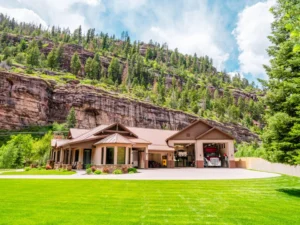We frequently get asked questions about 1031 exchanges, and how they can be utilized. In our business, we’ve seen 1031’s used in many ways. A cattle ranch can be sold to purchase a dairy queen. An orchard or vineyard property sold to purchase development land. Farmland in the South sold to purchase Colorado mountain hunting land.
1031’s can even be used when selling a property and then investing the proceeds into DST’s, REITs, and other investment strategies.
In this article, I want to specifically cover some of the specific points if you wanted to sell a second home, or vacation property with a 1031, or purchase a second home/vacation home using a 1031. Here are some of the rules and guidelines, as explained to me by a 1031 advisor.
Can You Include Vacation or Second Homes in a 1031 Exchange?
A common question is whether you can sell a vacation or second home as part of a 1031 exchange. The short answer? If the property is used only for personal purposes, it doesn’t qualify.
Here’s why: A 1031 exchange allows you to defer capital gains taxes when you exchange one property for another. But the property must be held for business or investment purposes—not personal use. This is the key requirement under Internal Revenue Code Section 1031.
That said, there are exceptions. If you use your vacation or second home as a rental property and limit your personal use, it might qualify. The IRS has outlined specific conditions for this:
- You must have owned the property for at least 24 months before the exchange.
- During each 12-month period, you must rent the property out for at least 14 days.
- Your personal use can’t exceed 14 days or 10% of the time it was rented—whichever is greater.
Examples:
- If you’ve only used the property as a vacation or second home, it doesn’t qualify.
- If you rent it for 14 days but use it personally for more than 14 days, it also doesn’t qualify.
- If you rent it for 123 days and use it for more than 14 days, it still won’t qualify.
- However, if you rent it for 180 days and personally use it for just 17 days (less than 10% of the rental time), it will qualify.
It’s also important to rent the property at fair market value and report the rental income on your tax return (Schedule E).
If you’re considering a 1031 exchange with a vacation or second home, it’s a good idea to consult with a tax or legal professional to make sure you’re on the right track.

